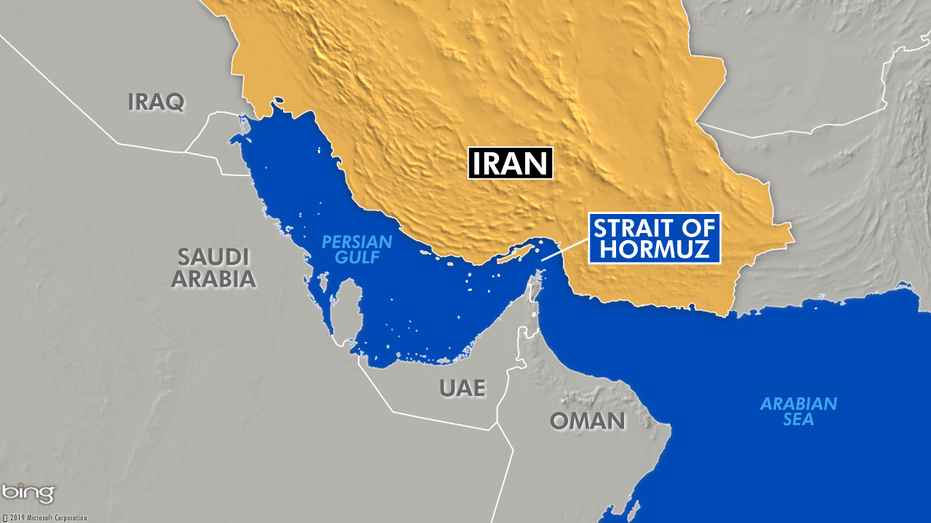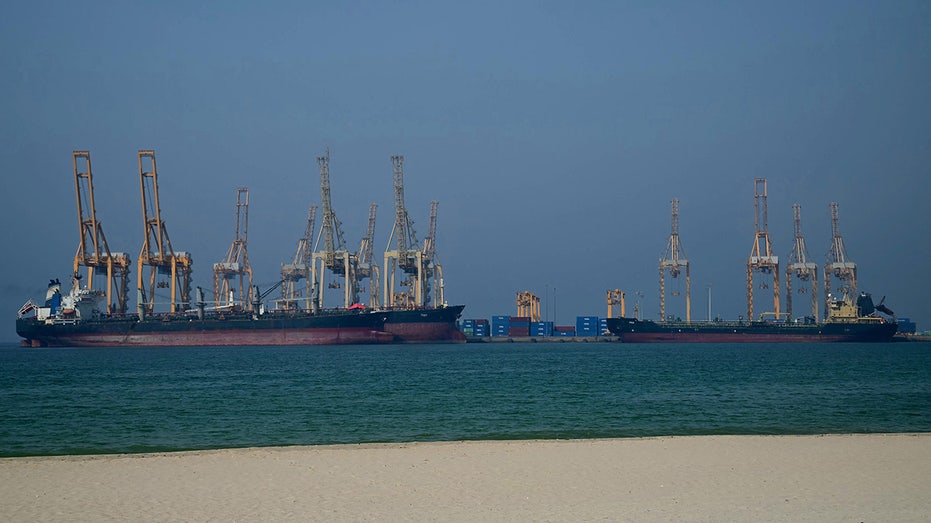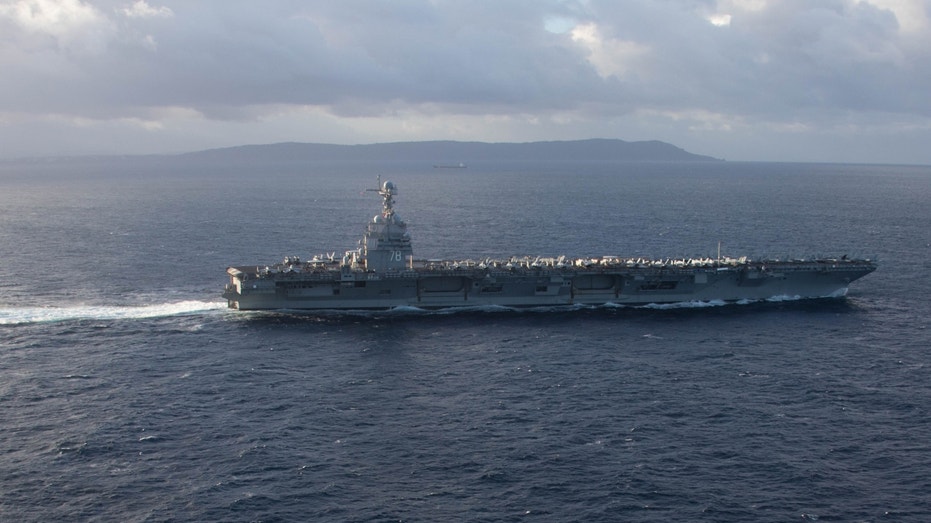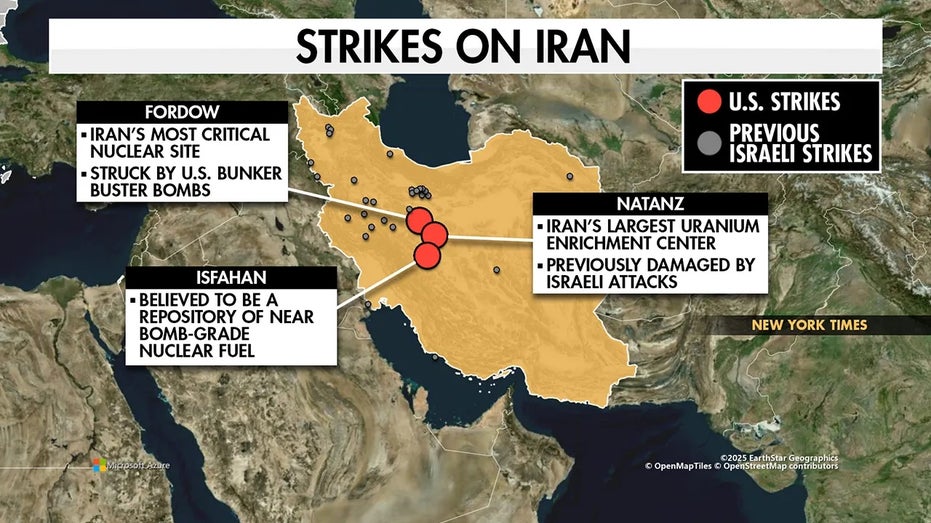Former U.S. Ambassador to NATO Kurt Volker discusses whether the U.S. attack on Iran will change the Middle East on Varney & Co.
Iran has warned that it may attempt to close the Strait of Hormuz to shipping traffic in retaliation for the U.S. joining Israel’s strikes on Iranian nuclear facilities.
The Iranian government is mulling retaliatory actions, including the potential closure of the Strait of Hormuz, a vital shipping lane for global energy supplies. The regime in Iran could pursue that goal through the use of mines, anti-ship missiles or other means to obstruct or destroy shipping.
Iranian state media recently reported on such a plan being approved by the country’s parliament, though it emphasized that it would require clearance from the nation’s Supreme National Security Council.
Roughly 20% of global demand for petroleum products transits through the Strait of Hormuz – which connects the Persian Gulf with the Gulf of Oman and the Arabian Sea and is bordered by Iran on one side. The strait is less than 30 miles across at its narrowest point, which would make it more challenging for vessels to transit the passage if Iran attempts to close it.
EXPERT WARNS OF ‘WAR OF CODES’ AFTER IRANIAN CRYPTO EXCHANGE GETS HACKED
Iran has threatened to attempt to close the Strait of Hormuz in retaliation for U.S. strikes on Iranian nuclear facilities. (Photo by Morteza Nikoubazl/NurPhoto via Getty Images / Getty Images)
The Energy Information Administration (EIA) within the U.S. Department of Energy noted that in 2024, oil flows through the strait averaged about 20 million barrels per day, with similar levels being reported in the first quarter of 2025.
“Flows through the Strait of Hormuz in 2024 and the first quarter of 2025 made up more than one-quarter of total global seaborne oil trade and about one-fifth of global oil and petroleum product consumption,” EIA wrote.
“In addition, around one-fifth of global liquefied natural gas trade also transited the Strait of Hormuz in 2024, primarily from Qatar.”
MAJOR OIL PRICE SHOCK LOOMING AS ISRAEL-IRAN CONFLICT THREATENS CRITICAL GLOBAL SHIPPING PASSAGE

The Strait of Hormuz is a narrow shipping passage through which one-fifth of global oil output passes. (Fox News / Fox News)
The EIA estimated that 84% of the crude oil and condensate and 83% of the liquefied natural gas that moved through the Strait of Hormuz went to Asian markets in 2024.
“China, India, Japan and South Korea were the top destinations for crude oil moving through the Strait for Hormuz to Asia, accounting for a combined 69% of all Hormuz crude oil and condensate flows in 2024. These markets would likely be most affected by supply disruptions at Hormuz,” the agency said.
EIA noted that the U.S. imported about 0.5 million barrels per day of crude oil and condensate from Persian Gulf countries through the Strait of Hormuz, which accounted for about 7% of U.S. oil and condensate imports and 2% of U.S. petroleum liquids consumption.
CHINA’S RESPONSE TO IRAN CONFLICT MORE CONCERNING IF WEST LOSES, VS RETRIBUTION FOR DEFEATING ITS TEHRAN ALLY

Tankers are seen at the Khor Fakkan Container Terminal along the Strait of Hormuz, on June 23, 2025. (GIUSEPPE CACACE/AFP via Getty Images / Getty Images)
The largest exporters of crude and condensate that transit through the Strait of Hormuz are Saudi Arabia (5.3 million barrels per day), Iraq (3.2 million) and the United Arab Emirates (1.8 million). Iran ranked fourth at about 1.5 million barrels per day as of the first quarter of 2025.
Secretary of State Marco Rubio appeared on Fox News’ “Sunday Morning Futures” and told host Maria Bartiromo that China and other countries should discourage Iran from attempting to close the Strait of Hormuz.
China is the main importer of crude oil shipped through the strait, bringing in 5.4 million barrels per day in the first quarter of 2025, according to EIA data.
“I encourage the Chinese government in Beijing to call them about that, because they heavily depend on the Strait of Hormuz for their oil,” Rubio said. “If they do that, it’ll be another terrible mistake. It’s economic suicide for them if they do it. And we retain options to deal with that.”
OIL PRICES EXPECTED TO BE IMPACTED FOLLOWING US BOMBING OF IRAN NUCLEAR SITES

The U.S. Navy has deployed two carrier strike groups to the region. (U.S. Navy photo by Mass Communication Specialist 2nd Class Jacob Mattingly / DVIDS / Fox News)
Rubio added that “other countries should be looking at that as well” and that it would “hurt other countries’ economies a lot worse than ours. It would be, I think, a massive escalation that would merit a response, not just by us, but from others.”
He also said that Iran’s government is “gonna say what they need to say. These are the things that need to happen for their own internal politics and so forth.”
“We had three objectives. We struck those three objectives with decisive force, and that was the point of this mission, and that’s what we achieved,” Rubio said of the U.S. strikes on Fordow, Natanz and Isfahan.

A map of the U.S. strikes on Iran on June 21, 2025. (Fox News / Fox News)
GET FOX BUSINESS ON THE GO BY CLICKING HERE
“What happens next will depend on what they want to do. They want to negotiate, we’re ready to negotiate. They want to get cute and do things that are dangerous, we have responses available that are devastating,” Rubio said.